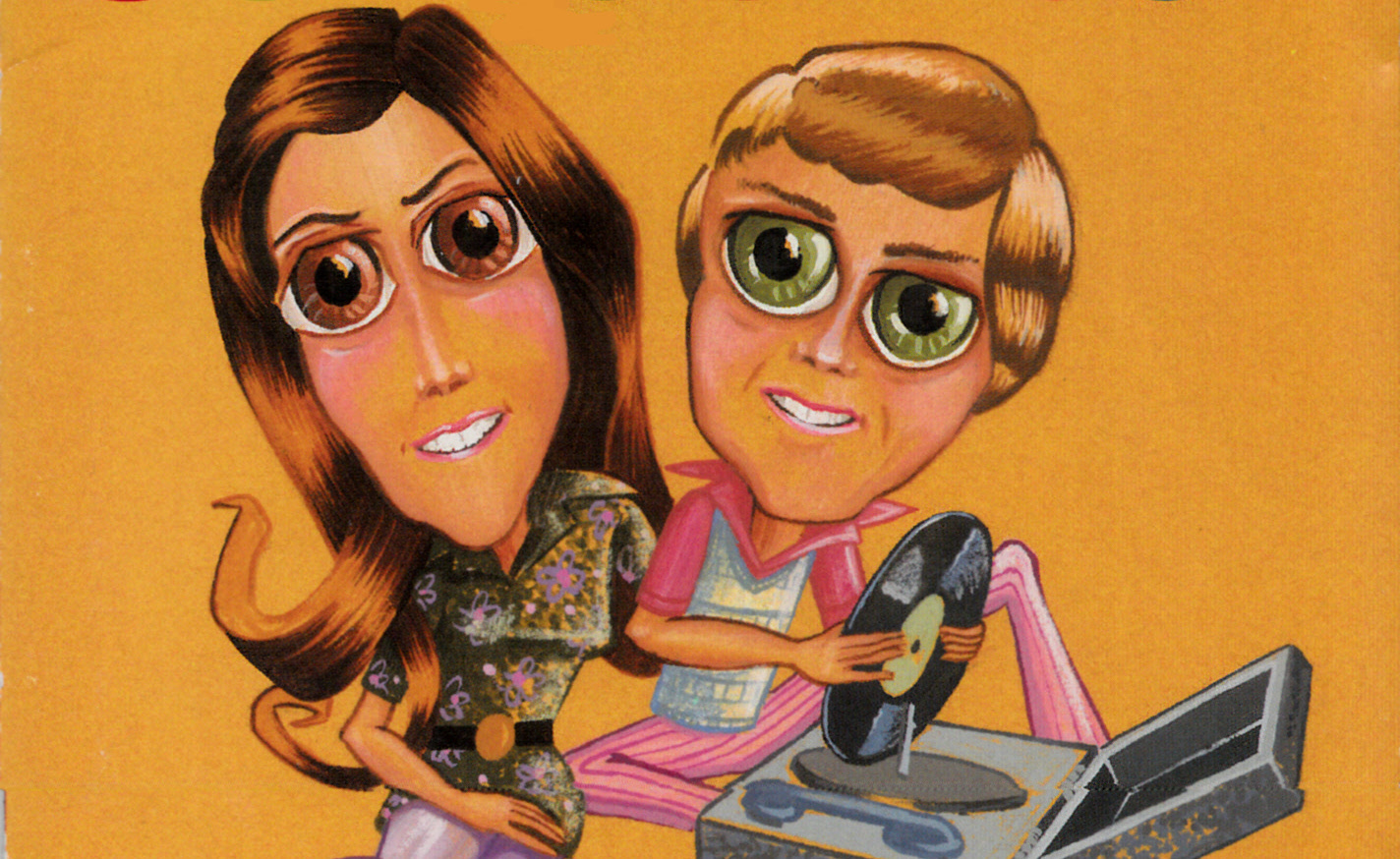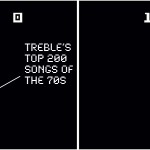10 Covers Albums: Many Artists, One Tribute

Over the last few months Treble has surveyed the wide sonic world of the cover album. We looked first at releases where one artist covered another, then where one covered many, and most recently where many covered many others. We bring our study to a close—for now—by presenting some of our favorite albums where many musicians pay homage to one. Where some of our prior research was made difficult by a perceived lack of albums to find, we had the opposite issue here. There are seemingly limitless instances where diverse performers come together to recognize a single important, favorite, or lost catalog, in formats physical and digital, addressing entire songbooks or specific compositions. That’s a good problem to have, right? With that in mind, here are the top 10 tribute albums on which our staff could agree.
 Lost In The Stars: The Music Of Kurt Weill
Lost In The Stars: The Music Of Kurt Weill
(A&M; 1985)
Hal Willner, whose career is hard to pin down but is quite likely your dream job, kickstarted the tribute album format with sets commemorating Nino Rota and Thelonious Monk. His third such offering, Lost In the Stars, connected in 1985 by building a nearly irrefutable case for German composer Kurt Weill being a primal influence on rock music, something he was only tangentially able to do on the Monk tribute That’s the Way I Feel Now. Unsurprisingly Weill’s straddling of popular and classical, of high art and sensationalist drama, resounded in every piece on Lost In the Stars, and though not every song’s an unqualified success every single artist commits. Sting’s mannered reading of “Mack The Knife” and Carla Bley’s and Phil Woods’ title track maintain the honor of the originals; Todd Rundgren and Gary Windo’s suite from The Threepenny Opera and John Zorn’s inflamed treatment of “The Little Lieutenant of the Loving God” strive abstract, lurid extremes; and Lou Reed’s “September Song” and The Fowler Brothers and Stan Ridgway’s “The Cannon Song” were balanced measures of homage and renovation. A lovingly schizophrenic and appreciably rickety collection, Lost In the Stars was the uncertified blueprint for what came to be known as the modern tribute album. – PP
 Red Hot + Blue
Red Hot + Blue
(Chrysalis; 1990)
If Hal Willner is music’s one-man army when it comes to tributes, then the Red Hot Organization might be, well, an actual army. Started in 1989 to develop creative ventures addressing HIV and AIDS, Red Hot has averaged a new musical or film project just about every year since then. Their best and most well-known release is likely this first one, which Red Hot co-founder John Carlin had called an “improbable dream.” Red Hot + Blue makes a savvy statement by having artists from many mainstreams open the Broadway and film songbook of gay icon Cole Porter—wildly popular himself and yet painfully closeted in his day—to fundraise for disease research and prevention. Like any good Porter production, the compilation is equal parts camp (Debbie Harry and Iggy Pop’s “Well, Did You Evah!”, U2’s over-the-top “Night and Day”), stomp (David Byrne’s awesome “Don’t Fence Me In,” “Who Wants to Be a Millionaire?” by Thompson Twins), and swoon (The Neville Brothers’ “In the Still of the Night,” Jody Watley’s “After You, Who?”). It also contains what might be the definitive version of “Ev’ry Time We Say Goodbye,” a spare, heartbreaking take by Annie Lennox that’s the album’s emotional center, a then-timely anthem for loss and remorse that remains an honest-to-goodness tearjerker to this day. – AB
 I’m Your Fan: The Songs of Leonard Cohen By…
I’m Your Fan: The Songs of Leonard Cohen By…
(Atlantic; 1991)
One solid fact makes both Leonard Cohen’s discography and this album of early ‘90s covers so exceptional: Everything he writes is stunningly moving poetry. When you take excellent musicians and give them outstanding poetry, the results are bound to be extraordinary. But when I’m Your Fan brings together a who’s who of alt/art rock — including Nick Cave, R.E.M., Pixies and John Cale — it’s damn near perfection. These covers aren’t tributes, they’re bona fide rewrites of the original, with each individual artist’s own style and soul distinctly fused with Cohen’s songwriting. At the same time, though, I’m Your Fan still feels like a Cohen album; his sincere-yet-pessimistic outlook is preserved throughout, as if the man himself is taking over the various voice boxes spouting out his words on these 18 tracks. Leonard Cohen is a complicated artist to put in a box, and I’m Your Fan doesn’t even try. Instead, it offers a kaleidoscope of vantage points from which to experience Cohen tracks any fan already knows and loves. – ATB
 Weird Nightmare: Meditations On Mingus
Weird Nightmare: Meditations On Mingus
(Columbia; 1992)
Hang on, folks, because this is an odd one. Weird Nightmare is definitely a tribute album, but it doesn’t exactly follow the rules of a tribute album. First off, Hal Willner is involved in the entire process as producer and mastermind behind the record. Secondly, the album is actually a tribute to two artists at once. Taking songs and compositions written and performed by experimental jazz double-bassist Charles Mingus, Willner works with a variety of artists from both classical and popular music (including Elvis Costello, Robbie Robertson, and Chuck D) to reconstruct works from Mingus’ discography. But here’s where it gets interesting: Willner exclusively relied on instruments constructed by music theorist Harry Partch to rewrite the original works into microtonal scales. The result is haunting and other-worldly, but still serves as a romantic tribute to both Mingus and Partch. After all, both men were known for pushing boundaries in their respective fields; Willner simply breaks another barrier by merging the two experimentalists into a singular, striking sound. – ATB
 If I Were a Carpenter
If I Were a Carpenter
(A&M; 1994)
In the irony-splayed ‘90s, it was extremely difficult to determine whether executive producers David Konjoyan and Matt Wallace conceived this set of unambiguously rock artists covering the hits of the could-not-possibly-be-easier-listening Carpenters in the spirit of loving tribute or filtered, winking reinterpretation. To their credit, they left it up to the artists to decide for themselves, probably making If I Were A Carpenter as honest an answer as could be. Which is not to say it’s completely answered. Songs by artists most inclined to voice more empathy for the material (American Music Club’s “Goodbye to Love,” Sheryl Crow’s “Solitaire,” Matthew Sweet’s “Let Me Be the One,” Grant Lee Buffalo’s “We’ve Only Just Begun”) all strike it rich, and successfully extract the darkness we got from the Karen Carpenter story years after it had ended. Pieces of dramatic reinvention (Sonic Youth’s “Superstar,” Bettie Serveert’s “For All We Know”) go for jugular juxtaposition, and sort of remain incomplete. The pieces in the middle of the extremes (Shonen Knife’s “Top of the World,” Redd Kross’ “Yesterday Once More”) come off as childlike, welcome new discoveries. As for Dishwalla (“It’s Going to Take Some Time”) and 4 Non-Blondes (“Bless the Beasts and the Children”) – well, at least they were working with good material for a change. The album does succeed in proving that, despite the dark subtexts in the originals completely going over many of the Carpenters’ first fans, there was a deep ennui going on behind the seraphim choruses and Richard Carpenter arrangements that merits renewed examination. It also suggests the Carpenters were an extremely rare breed: commercial superstars in their day that were nonetheless, in many ways, too much before their time. – PP
 Encomium: A Tribute to Led Zeppelin
Encomium: A Tribute to Led Zeppelin
(Atlantic; 1995)
In the mid ‘90s, alt-rock was full of grimy, blues-inspired guitar and soaring, gritty vocals. So, in more ways than one, Led Zeppelin was the perfect muse for bands like 4 Non Blondes, Blind Melon and Stone Temple Pilots. And all those bands deliver excellent takes on Led Zep classics on 1995’s Encomium. But what really speaks to the nigh-limitless impression the band had on rock is the contrast of artists across this record. Never before (or again) would you find Hootie & The Blowfish and Sheryl Crow performing alongside Henry Rollins and Helmet, but that’s exactly what you walk into here. Hell, even Duran Duran shows up. What’s really crazy, though, is how well the album flows, despite the variety of genres and backgrounds represented. While the listener is unlikely to be a fan of every musician on this list in their own right, they all do Led Zeppelin such justice that it’s impossible to not connect with the eleven cover tracks here. And to top it all off, Robert Plant shows up at the twelfth and final track, teaming up with Tori Amos to offer a delightfully gentle, almost jazzy take on “Down By The Seaside.” It’s an odd ‘90s hodge-podge on paper but damn if it doesn’t shine through on execution. – ATB
 Step Right Up: The Songs of Tom Waits
Step Right Up: The Songs of Tom Waits
(Caroline; 1995)
Tom Waits’ ability to deliver keen and disturbing images with haunting melodies and/or beat poetry is difficult to imitate, but it sure is fun to try! Several artists spanning several genres take their stabs at some of their favorite Waits tunes (and not necessarily his hits) on Step Right Up. Dave Alvin faithfully delivers “Ol’ 55” while Pete Shelly punk-ifies “Better Off Without a Wife.” Tim Buckley doesn’t change much to “Martha” while Pale Saints converts “Jersey Girl” into a beautiful dirge, doing more with this song than Springsteen ever could. Violent Femmes have way too much fun with the title track while Frente! makes “Ruby’s Arms” even more sad and beautiful. It’s all capped off by 10,000 Maniacs’ lovely rendition of “I Hope that I Don’t Fall in Love with You.” Step Right Up is a mess, to be sure — as is Waits’ entire catalog — but it’s an irresistible mess. – CG
 Dub Side of the Moon
Dub Side of the Moon
(Easy Star; 2003)
It’s not uncommon for all-star bands to be assembled to pay tribute to one artist (see: the Backbeat soundtrack’s indie-rockers channeling The Beatles). It’s also not unheard of for cover albums to focus on a single release (see: Badlands, an homage to Bruce Springsteen’s Nebraska). Here we find a unique confluence of these two variations on our theme. Performed by Easy Star All-Stars, an ensemble built from the roster of New York’s Easy Star label, Dub Side of the Moon is a dub reggae version of Pink Floyd’s The Dark Side of the Moon. Presented in the same running order as the original, it doesn’t just make the claim that dub’s spacey, echoing production shares common ground with one of the great psychedelic rock albums of all time. By God, it backs it up. From the obvious languid stoner feel of “Speak to Me/Breathe” and “Us and Them” to the surprising drum’n’bass take on “On the Run,” with some moments of cheeky humor David Gilmour would no doubt appreciate—bong bubbles replace the cash register sound effects of “Money,” for example—Dub Side is a batshit-crazy idea that actually worked. – AB
 Wig in a Box: Songs from & Inspired by Hedwig and the Angry Inch
Wig in a Box: Songs from & Inspired by Hedwig and the Angry Inch
(Off; 2003)
The 1998 glam-punk-cabaret musical that spent its first two-and-a-half years off-off-off Broadway was not ignored by some of rock’s favorite “misfits and losers.” In 2003, Chris Slusarenko of Off Records compiled this charity album, but what’s remarkable is the breadth of talent that gathered together to recall the tale of a slip of a girly boy from East Berlin with a botched sex-change operation. Rufus Wainwright provides his signature drone in “The Origin of Love.” B-52s’ Fred Schneider joins Sleater-Kinney in the origin song, “Angry Inch.” The Breeders show respect and restraint on the lovely “Wicked Little Town.” And The Polyphonic Spree make a production of the title track, as it should be. Yoko Ono, Cyndi Lauper, heck – even Stephen Colbert appear. The cherry on top is a new track written and performed by Hedwig’s creators, John Cameron Mitchell and Stephen Trask, “Milford Lake,” that authenticates the whole, glorious project. – CG
 Spirit of Talk Talk
Spirit of Talk Talk
(Fierce Panda; 2012)
To call Talk Talk’s catalogue diverse would be an understatement; radio-friendly synthpop hits like “It’s My Life” seem worlds away from the sprawling ambience of, say, “After the Flood.” Spirit of Talk Talk tends to skew toward covers of the band’s more influential later albums; every track from Spirit of Eden and the incomparable Laughing Stock is covered here, perhaps twice. But the early stuff is present here too, recontextualized in a less dated, post-rock lens that does more to unite the band’s fragmented catalog than previously thought possible. The compilation is further freed from predictability by its use of unknowns; aside from contributions by Zero 7 and S. Carey, many of the artists featured here (The TenFiveSixty? The Acorn?) bring no preconceptions to the table. It keeps the focus on the strength of Mark Hollis’ songwriting, and make some of the better transformations — Minerva Lions’ transformation of “Ascension Day” into a barroom blueser, for example, or Recoil’s menacing reimagining of “Dum Dum Girl” — that much more of a revelation. – SP
You might also like:




